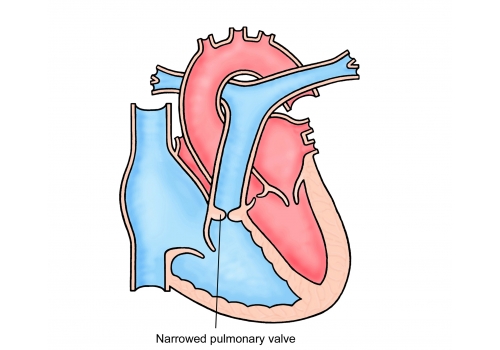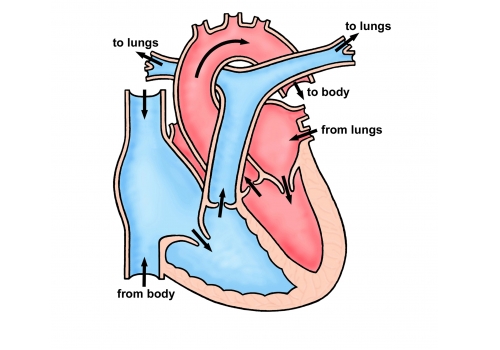Adult
- About
- Meet The Team
- Conditions
- Anticoagulation in Pregnancy
- Aortic Dilatation and Pregnancy
- Aortic Valve Disease
- Aortic Valve Replacement
- Atrial Septal Defect
- Coarctation - Transcatheter stent (keyhole) treatment
- Coarctation of the Aorta
- Congenitally Corrected Transposition of the Great Arteries
- Ebsteins Anomaly
- Eisenmenger’s Syndrome
- Fontan Circulation
- Mitral Valve Repair/Replacement
- Normal Heart
- Patent Foramen Ovale
- Pregnancy information for women with metal heart valves
- Pulmonary Incompetence
- Pulmonary Stenosis
- Pulmonary Valve Replacement - Surgery
- Pulmonary valve replacement - Transcatheter (keyhole) treatment
- Repaired Atrioventricular Septal Defects
- Sub-aortic Stenosis
- Surgical treatment of Atrial Septal Defect
- Tetralogy of Fallot
- Transposition of the Great Arteries - The Atrial Switch (Mustard or Senning) procedure
- Transposition of the Great Arteries – Arterial Switch
- Ventricular Septal Defect
- Ventricular Septal Defect - Transcatheter (keyhole) treatment
- Patient Feedback
- Making the most of your clinic appointment
- Your Appointment in Outpatients
- Easy Read Guide for Out Patients
- Cardiac Catheter
- Transoesophageal Echocardiogram
- MRI
- Surgery & "Top Tips" for coming into hospital
- Lifestyle Advice
- Exercise
- Heart Failure
- End of Life and Palliative Care
- Looking after your oral health
- Dentists Information Section: Dental care in adults at risk of Infective Endocarditis
- Yorkshire Regional Genetic Service
- Support
- Video Diaries
- Second Opinion
- Monitoring Results at Leeds Infirmary
- Professionals
Pulmonary Incompetence
The pulmonary valve is a flap like structure which sits between the right sided pumping chamber of the heart (right ventricle) and the artery that leads to the lungs (pulmonary artery). It allows the blood to flow in one direction by opening and closing as the heart pumps.
A video explanation of pulmonary incompetence (or pulmonary regurgitation) and its treatment by pulmonary valve replacement.


If you were born with pulmonary stenosis (narrowing of the pulmonary valve) and had the valve stretched either surgically or via a cardiac catheter or balloon as a child, the valve can be ‘leaky’ afterwards. This leak is known as Pulmonary Incompetence (PI) or Pulmonary Regurgitation (PR). If the valve leaks significantly, blood is able to flow backwards from the main lung artery back into the right sided pumping chamber. If this is left untreated it can eventually cause the right side of the heart to stretch and sometimes to suffer long term damage.
Assessment of Pulmonary Regurgitation
We normally assess pulmonary regurgitation by listening to your heart and by doing a heart ultrasound scan (an echo). This shows us if the heart is coping with the leak on the valve and can show us how bad the leaky valve is. We now also use Magnetic Resonance Imaging (MRI) in some patients to help assess how bad the leaky valve is. It is important that you attend the specialist clinic so that we can assess your heart as the years go by.
Will I need any treatment for my Pulmonary Incompetence?
Most patients will never need any further treatment for pulmonary incompetence if it is mild. However in some patients with more severe pulmonary incompetence, the right sided pumping chamber can start to stretch. If this happens it can lead to heart rhythm disturbances and long term damage to the right sided pumping chamber. Because of this, if we see a significant degree of stretch on the right sided pumping chamber we may recommend that the valve is replaced.
How is the valve replaced?
In most patients the valve will be replaced using a replacement heart valve. This requires open heart surgery. This involves opening the chest (usually in the middle at the front) and the function of the heart and lungs being taken over by a machine (bypass machine) so the surgeon can open the heart and replace the valve. There is a very small risk of death (less than 1 in 100) and a very small risk of major complications such as brain damage (less than 1 in 100). Other complications such as fluid collecting around the heart or lungs can occur after the operation but these are very rarely serious. After the operation you would need to stay in hospital for about 5-7 days, although a longer stay might be necessary if there are any complications. It usually takes about 3 months to fully recover from an operation of this kind. Unfortunately these replacement valves do not last forever, and its likely you would require a further operation at some point.
In a few patients it may be possible to replace the valve using a keyhole technique. – the new pulmonary valve is made from a cow’s jugular vein which contains valves very similar to human heart valves, sewn inside a wire mesh stent. The stent is mounted on a balloon catheter and routed through a large vein in the leg; using x-ray guidance the balloon is carefully guided into the right part of the heart where the balloon is inflated to deploy the valve. As with all procedures it carries some risk. This procedure usually requires only a one night stay in hospital, and the recovery is much quicker than from surgery.
Lifestyle issues
You should not be restricted by your heart condition and we would encourage you to follow an active lifestyle to maintain your health. It is recommended that you avoid sports or activities which involve really hard sustained exercise (like long distance running) or those that are played at competitive level as this can cause strain on your heart.
Good dental hygiene is important, to prevent endocarditis (an infection within the heart). It is important to visit the dentist regularly, but you no longer require antibiotics prior to dental work.
Due to increased risk of infection we would also advise against body piercing and tattoos.
Female patients
It is important to let the cardiologist know beforehand that you are planning a family so that the team can offer information and support throughout the pregnancy. In most patients with pulmonary incompetence pregnancy and normal delivery are uncomplicated.
All methods of contraception should be acceptable with this condition, as long as you chose a safe and reliable option.
It is important to talk to your GP or the Cardiac Nurse specialist for advice.
Written by Adult Congenital Heart Team
